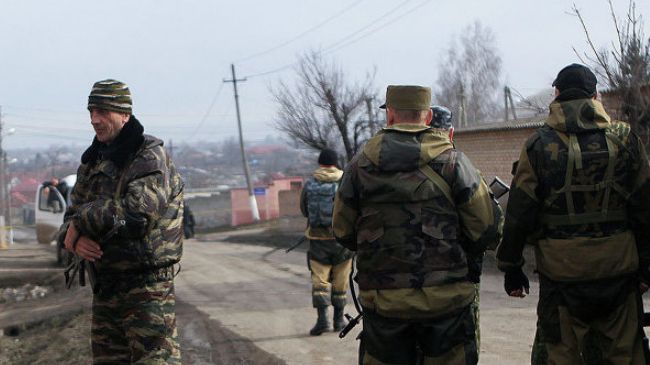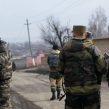
With Sochi on the Horizon, Putin Calls for Intensified Efforts to Hunt Militants
Publication: Eurasia Daily Monitor Volume: 9 Issue: 192
By:

On October 16, Russian President Vladimir Putin held a meeting with the country’s top government officials on fighting terrorism in Russia. The list of participants at the government’s council on countering terrorist activities unmistakably pointed to the North Caucasus as Moscow’s primary concern. The heads of the counter-terrorism units operating in the North Caucasus took part in the video conference. Interior Minister Vladimir Kolokoltsev, Defense Minister Anatoly Serdyukov, Federal Security Services (FSB) Director Alexander Bortnikov, Chief of Staff Nikolai Makarov and interior ministry forces commander Nikolai Rogozhkin attended the meeting at the president’s state residence in Novo-Ogaryovo. Putin praised the security services and called on the officials to continue “to act extremely decisively” when it comes to fighting terrorism. “[E]very miscalculation costs us very dearly, so [we] need to work without halts, decisively, preventively and, where there is a need, audaciously [derzko],” Putin stated (https://kremlin.ru/news/16658).
Use of the word “derzko” in the given context by President Putin begs further explanation. Normally, in Russian this word is used to describe a situation in which an actor engages in adversarial activities in a hostile environment surrounded by clearly superior forces. The word is also used in the context of overdoing something in order to achieve a desirable result. Both meanings deeply resonate with the Russian security services’ modus operandi in the North Caucasus. The Russian government increasingly feels, whether justifiably or not, that its actions in the region are met with passive or active opposition from a majority of the politically active population in the North Caucasus. In order to achieve some results under the duress of a perceived hostile environment, the security services habitually revert to overdoing their responsibilities. According to the classic security dilemma situation, the government consciously chooses to overreact, thinking of it as a precautionary and preventive measure. In practice, however, this approach leads to gradual escalation of hostilities between the government and the local population in the North Caucasus and the alienation of the latter from the rest of the country.
In his opening remarks, Vladimir Putin gave clues to what he meant by “acting audaciously” (rabotat derzko) against the militants. According to the Russian president, law enforcement’s “audaciousness should be directed first of all [or primarily] against the bandits, the terrorists, the criminals, while law-abiding citizens, ordinary […] citizens should be treated with extreme care during any operations against terrorists” (https://kremlin.ru/news/16658). Putin’s remarks—putting a clear emphasis on overreacting while carrying out security operations—can easily be understood as tacit approval of collateral damage among the civilian population of the North Caucasus. Dozens of civilians die during special operations in the North Caucasus every year.
President Putin’s revealing statements certainly do not outline a new policy, nor will his audience among the Russian security services engage in reflection on the fine details of the president’s speech. Putin’s statements are first of all interesting because they confirm the view that the president of the country expressly approves of the Russian security services’ human rights abuses in the North Caucasus. There may well be a further increase in these abuses, since Putin warned the security services to ramp up their efforts, including being more “audacious” in order to provide security for the “whole range of very significant political and sports events” (https://kremlin.ru/news/16658). Among other things, the Russian president was apparently referring to the 2014 Olympics in Sochi. The logic of Moscow’s actions in the North Caucasus in the past few years has largely been determined by the preparations for the upcoming Olympics. In passing, Putin openly admitted that the Russian military has not only taken part in the counter-terrorism operations in the North Caucasus, but even “made a range of serious steps in this direction.” Other Russian officials had previously contested claims that the Russian military was resuming its operations in the North Caucasus.
On October 19, the International Crisis Group (ICG) released its report on the situation in the North Caucasus. According to the ICG, the North Caucasus is the location of “Europe’s deadliest conflicts,” with little hope that the violence will subside soon. The report provides a broad overview of the situation in the region, also noting among the most recent trends signs of ethnic mobilization by some ethnic groups. While providing very useful insights on the North Caucasus, the report lacks depth of analysis, since it largely shies away from attempting to unlock the causes of violence in the region. In particular, the ICG’s report ignores the demise of democracy in Russia and the North Caucasus and fails to explore the correlation between the rise of political violence and the lack of participatory politics. The report even cautions against the recent modest moves by Moscow to liberalize the electoral process, issuing a warning that this could lead to ethnic mobilization if ethnic groups do not feel protected by the government. Therefore, in the ICG’s view, the Russian government led by Vladimir Putin justly and fairly mediates the conflicts in the North Caucasus. It is unclear why the side of the violent conflict in the region that inflicts most casualties, namely Moscow, is seen as a fair mediator in the region. The ICG’s report suggests that better integration of the North Caucasus into Russia will solve regional problems. By establishing this opinionated statement as the pillar of its report, the ICG practically sides with one of the parties to the conflict and implicitly rejects the need for democratic evolution and self-governance in the North Caucasus (https://www.crisisgroup.org/en/regions/europe/north-caucasus/220-the-north-caucasus-the-challenges-of-integration-i-ethnicity-and-conflict.aspx).
Meanwhile, President Putin appears more determined than ever to eradicate the insurgency in the North Caucasus well before the start of the 2014 Olympics in Sochi. However, cracking down on the rebels in the ways that would ignore creating collateral damage among the civilians is likely to create a backlash in the region, rather than pacify it.




